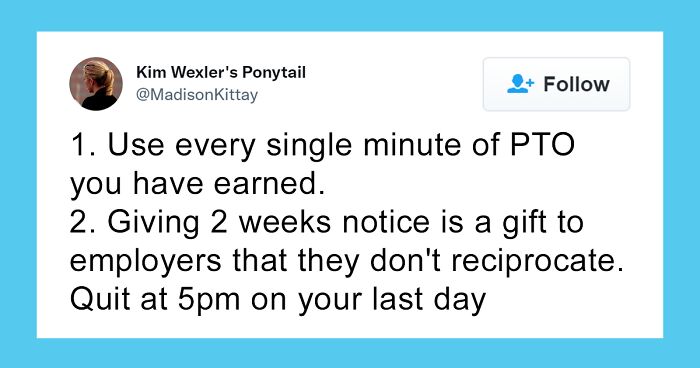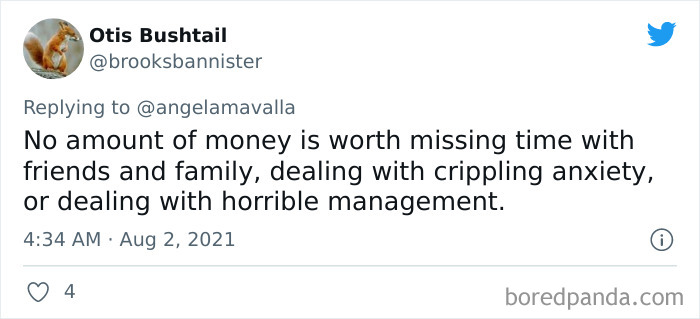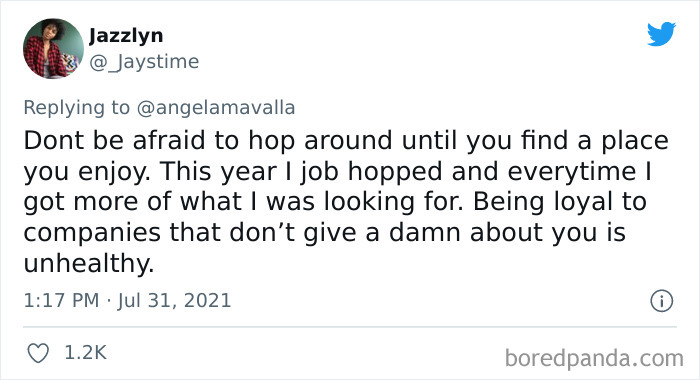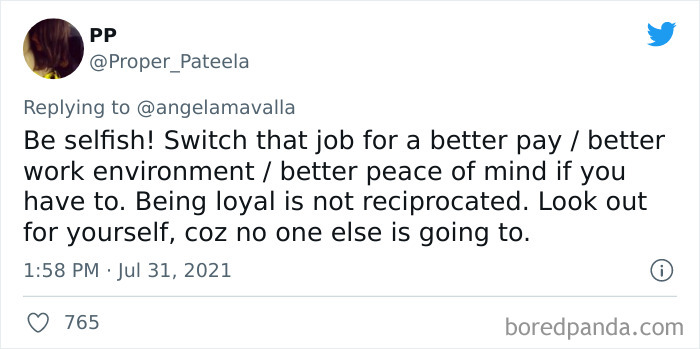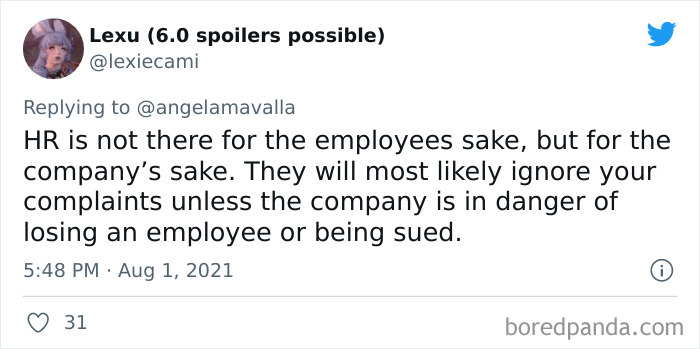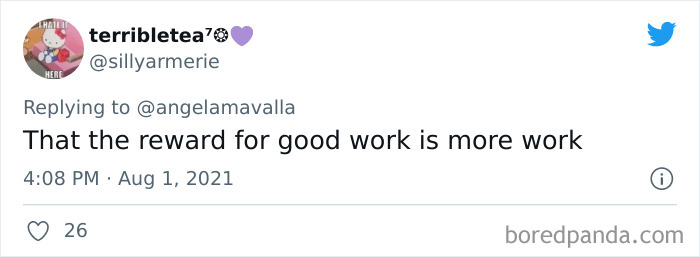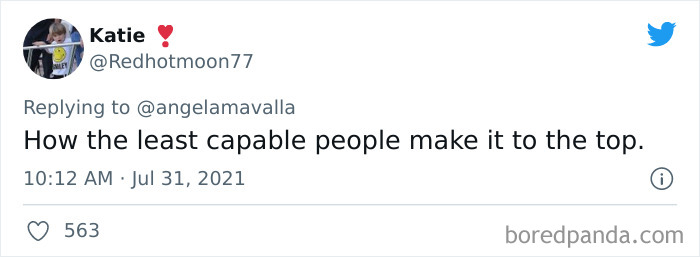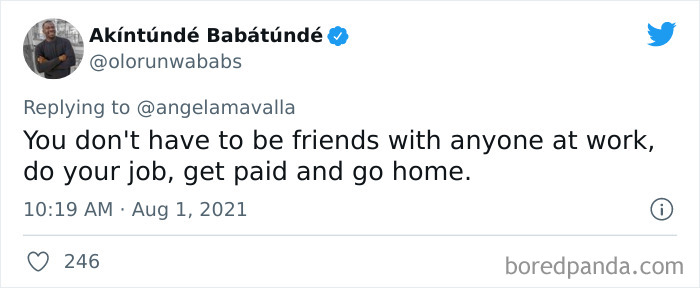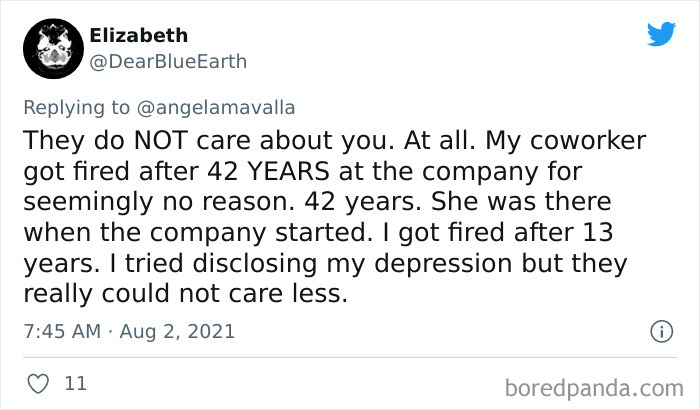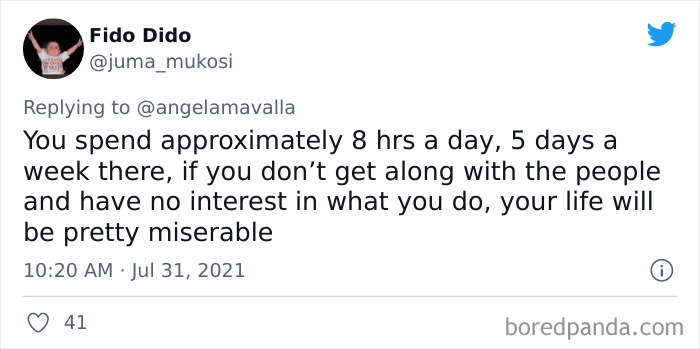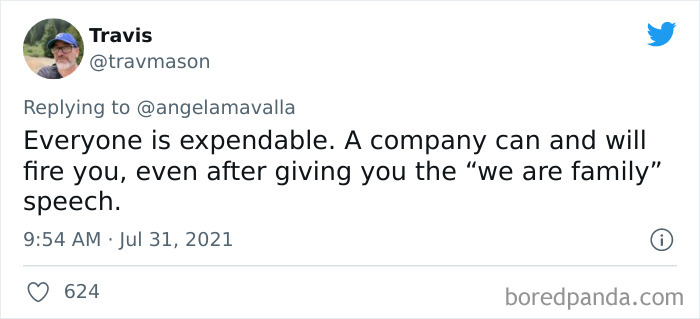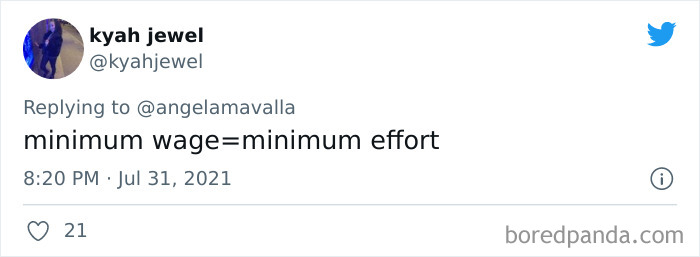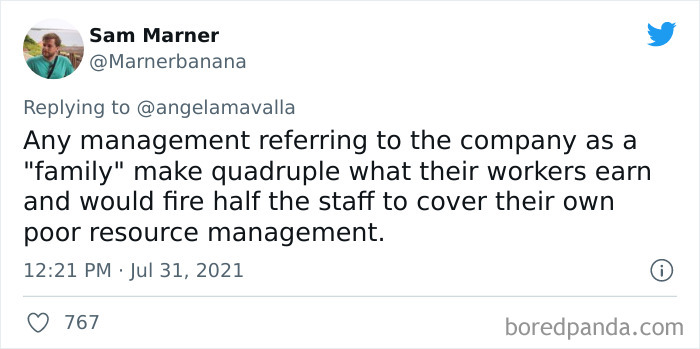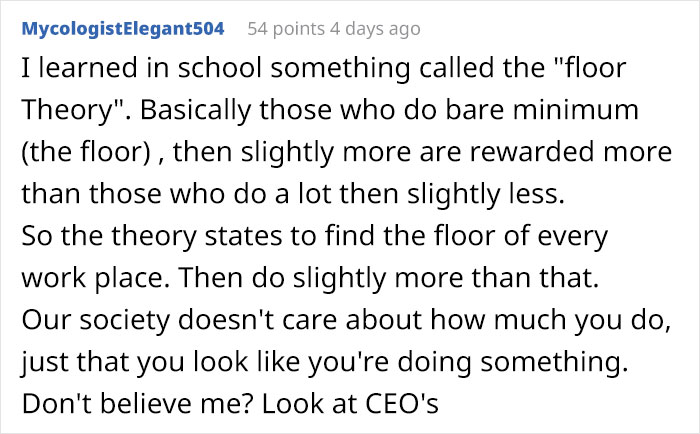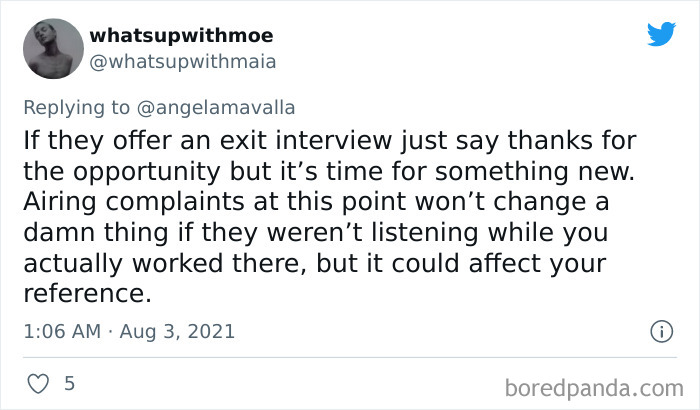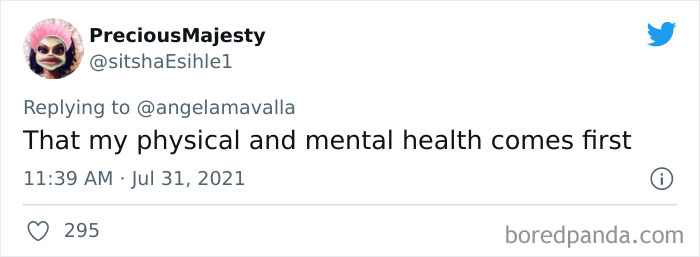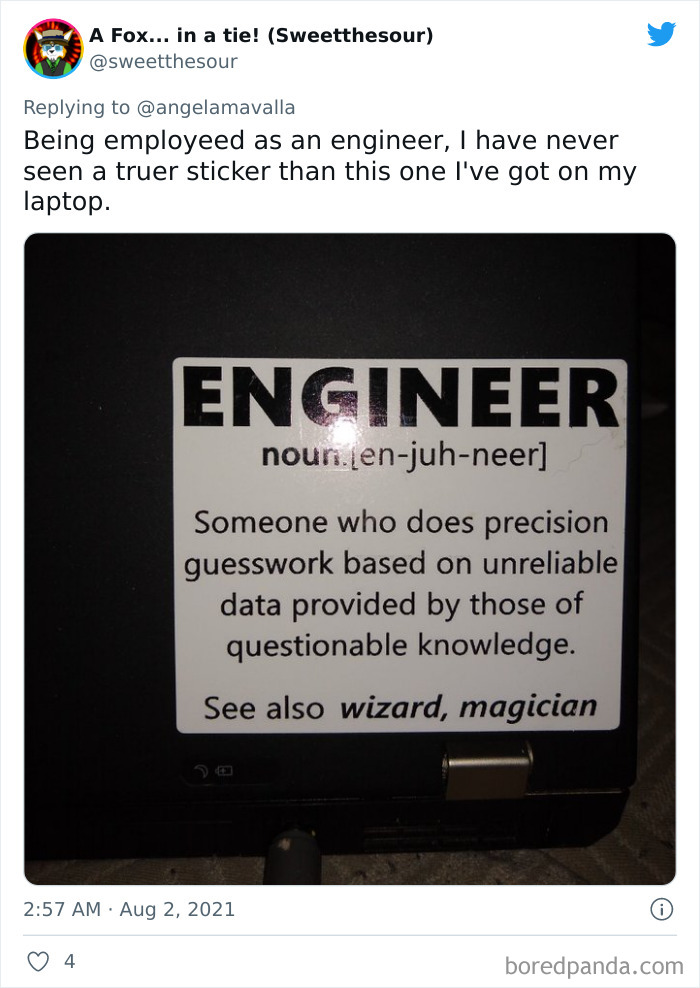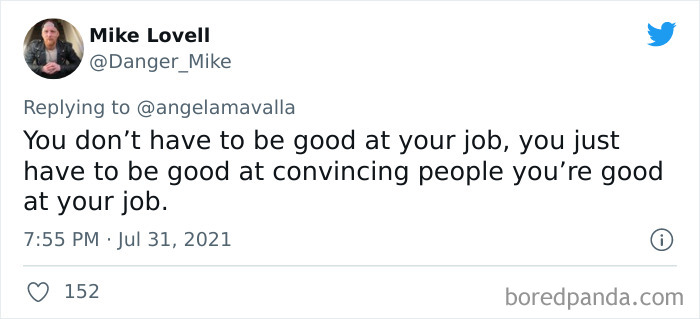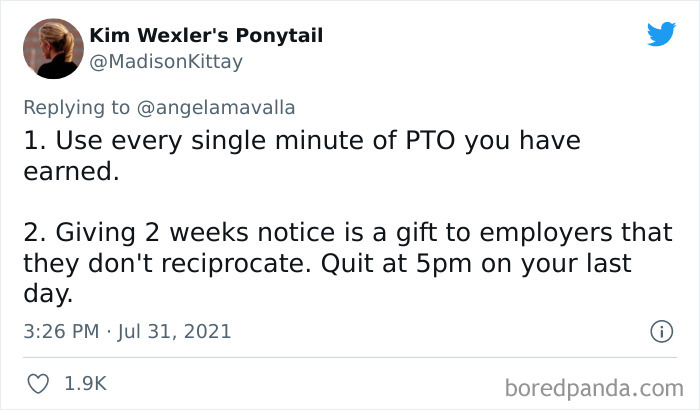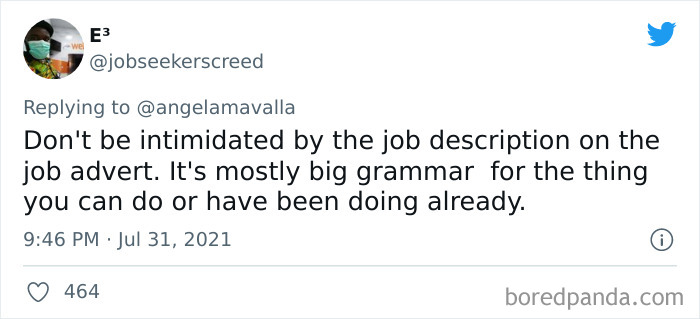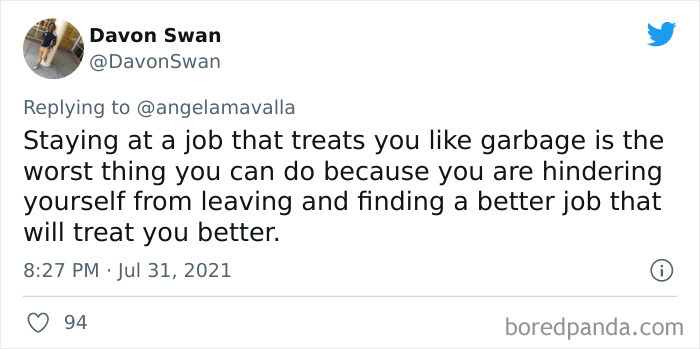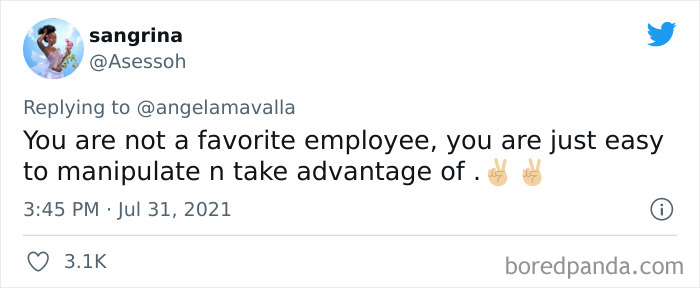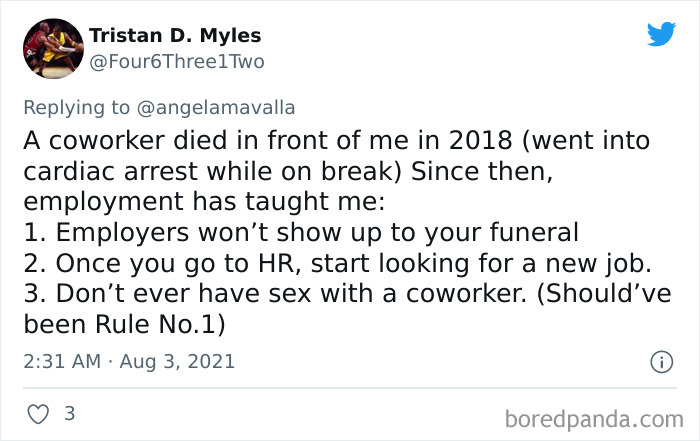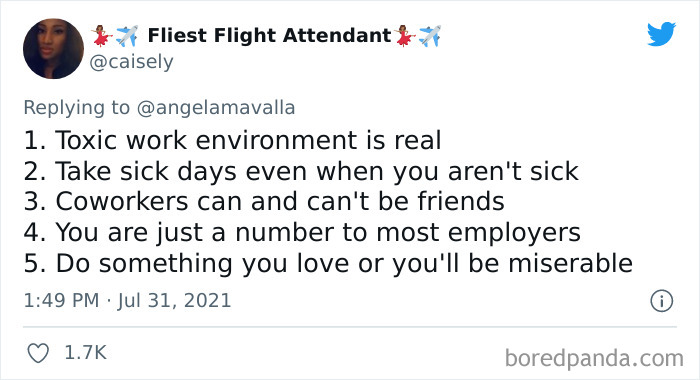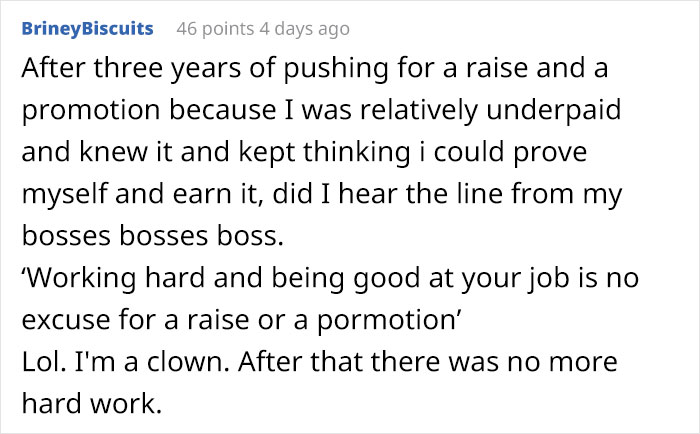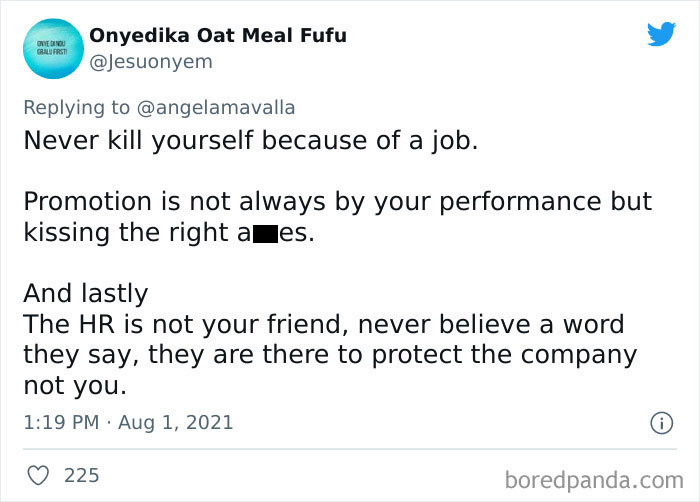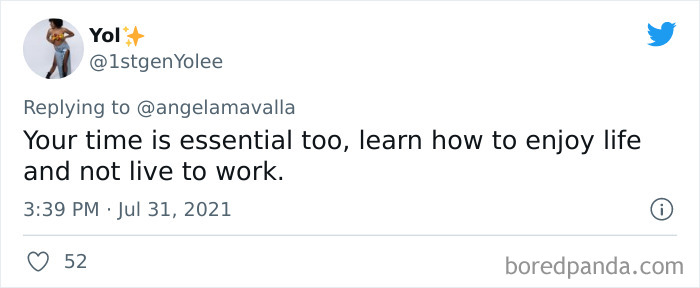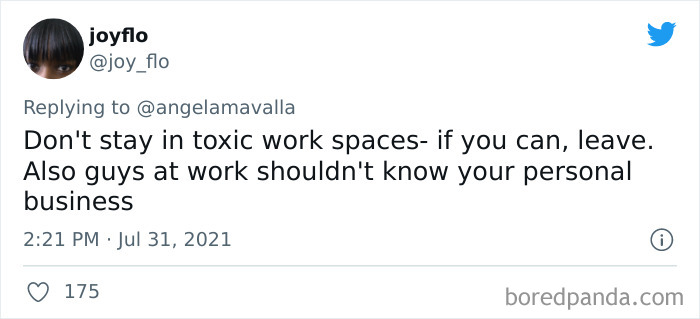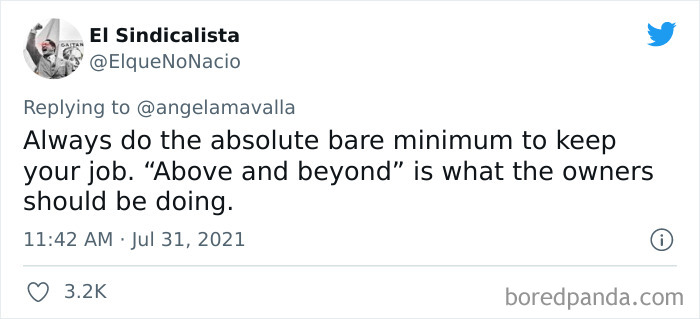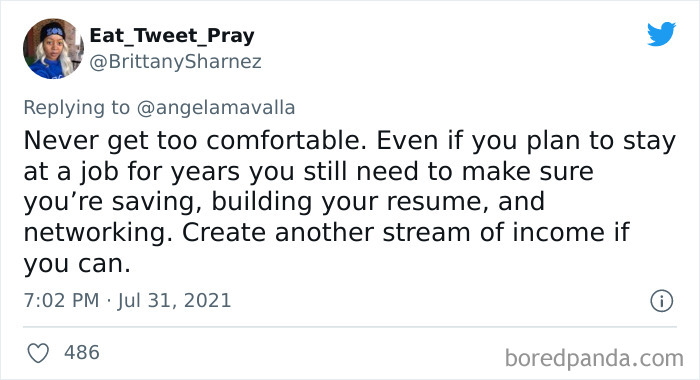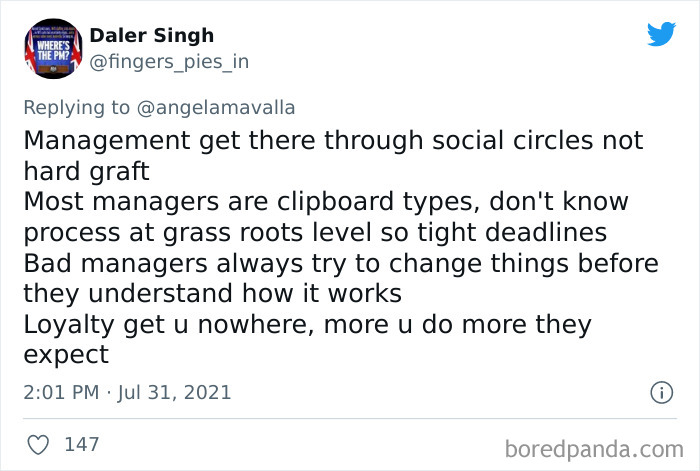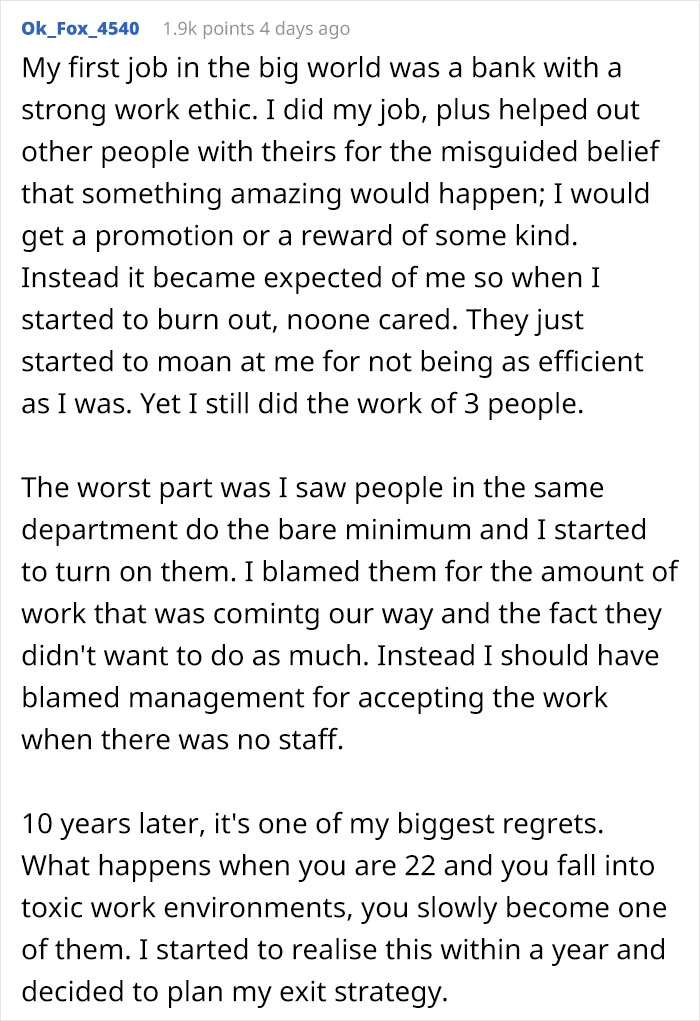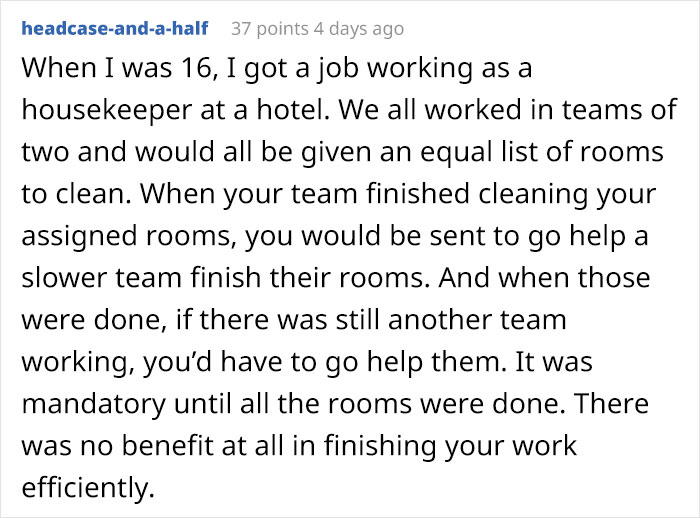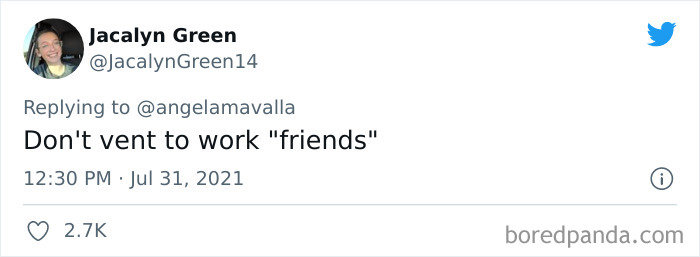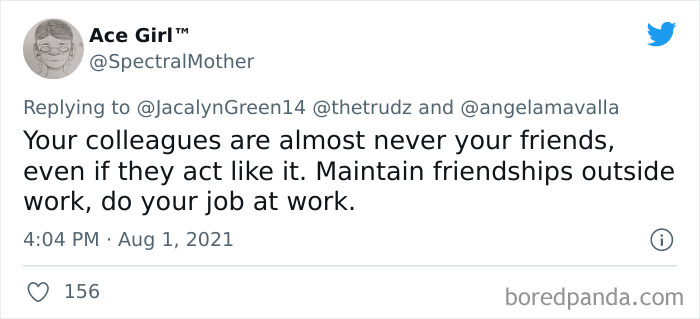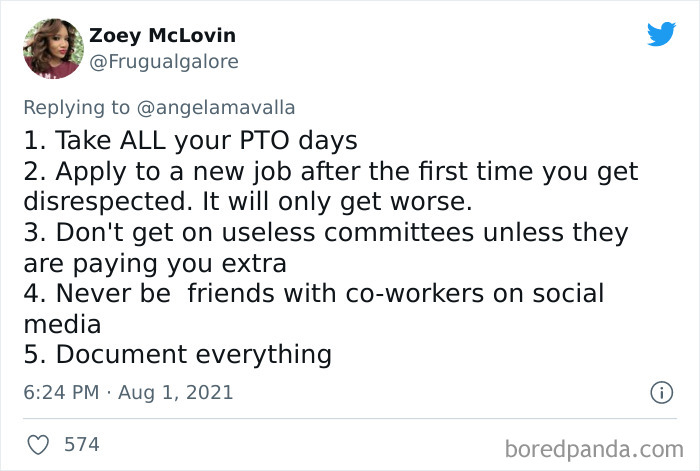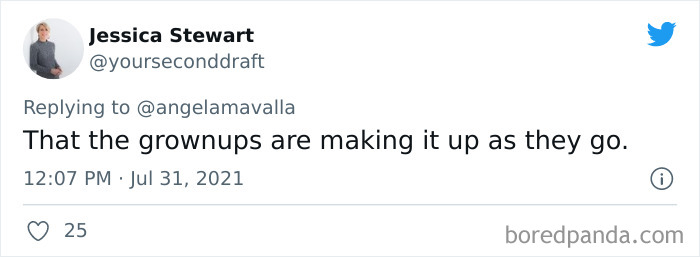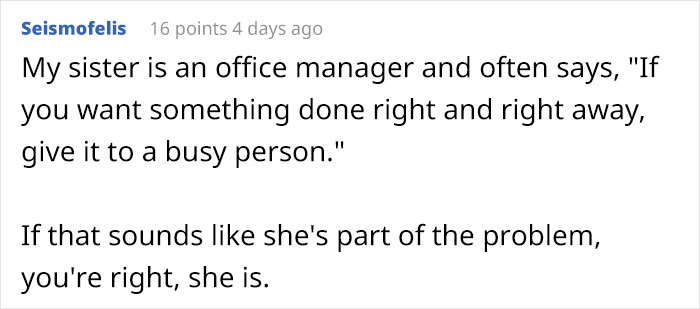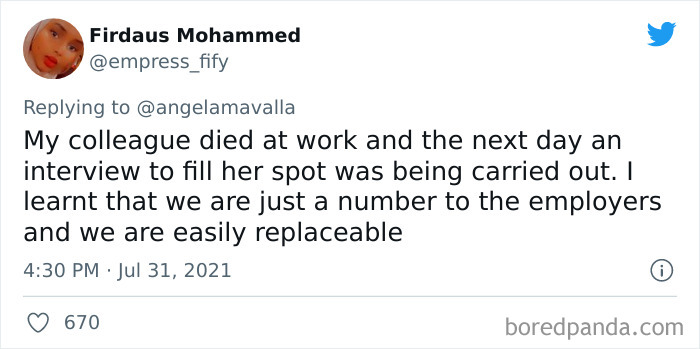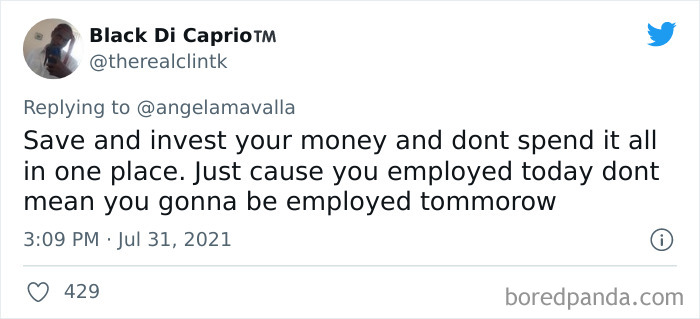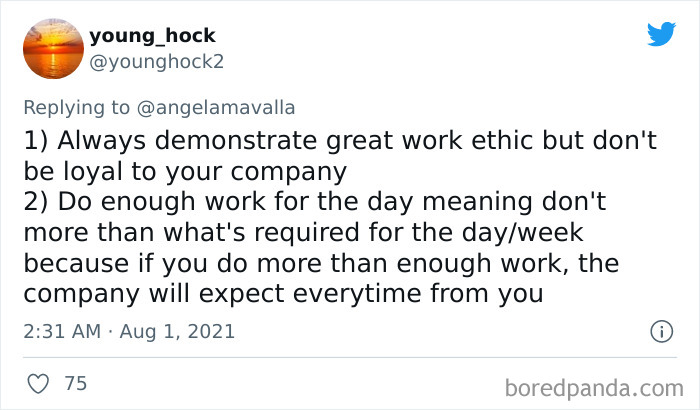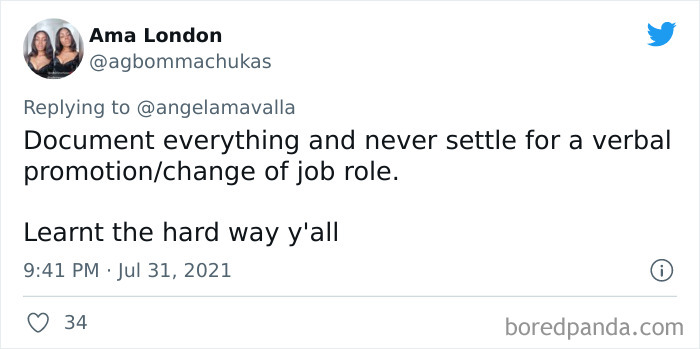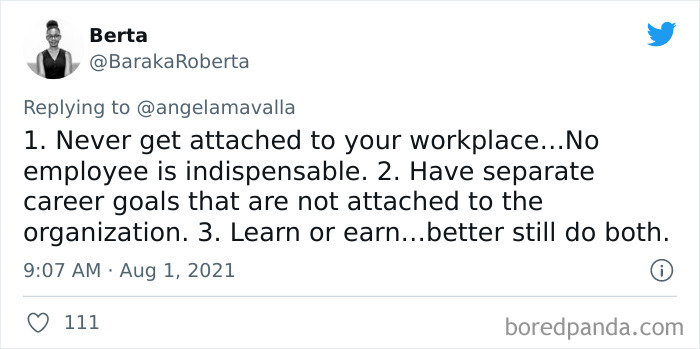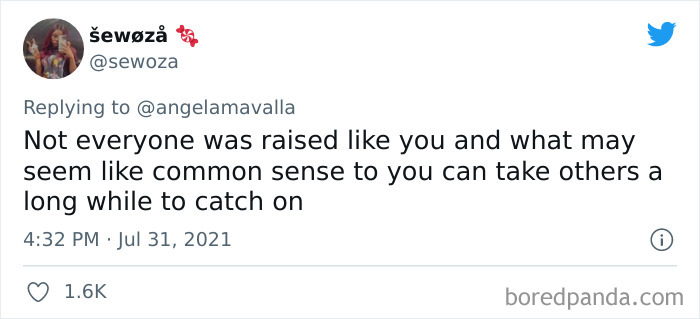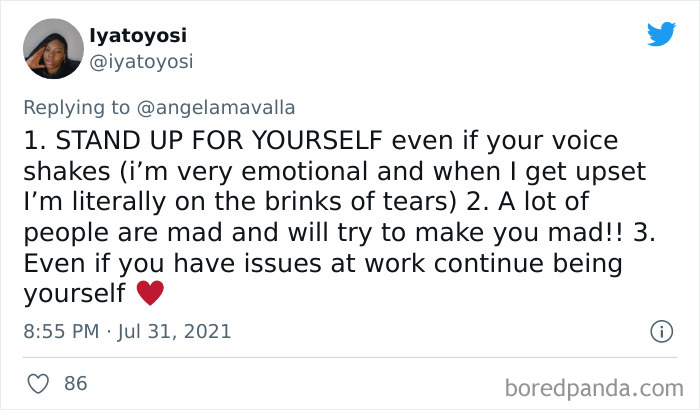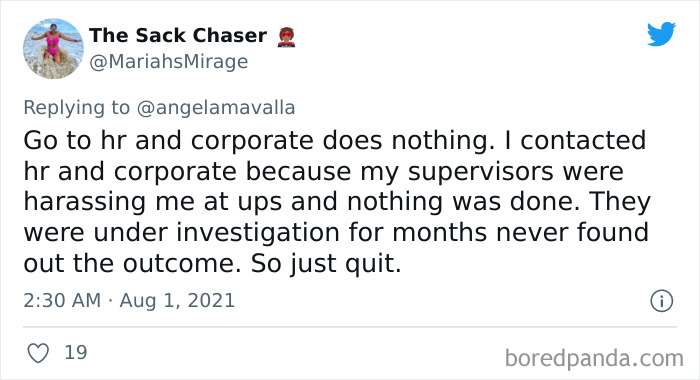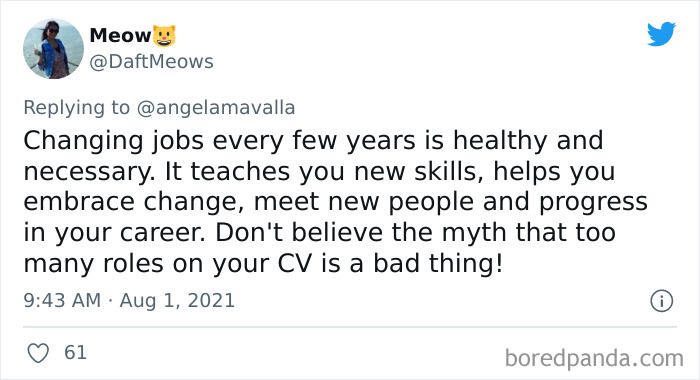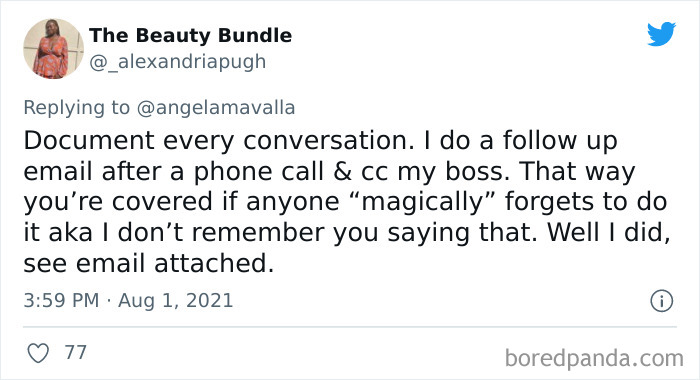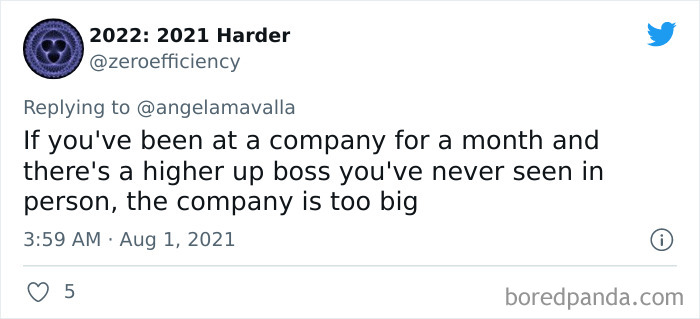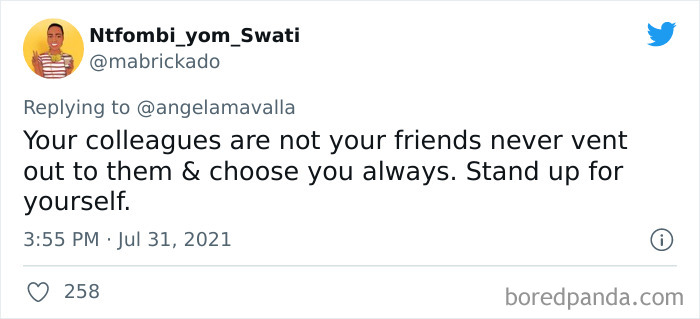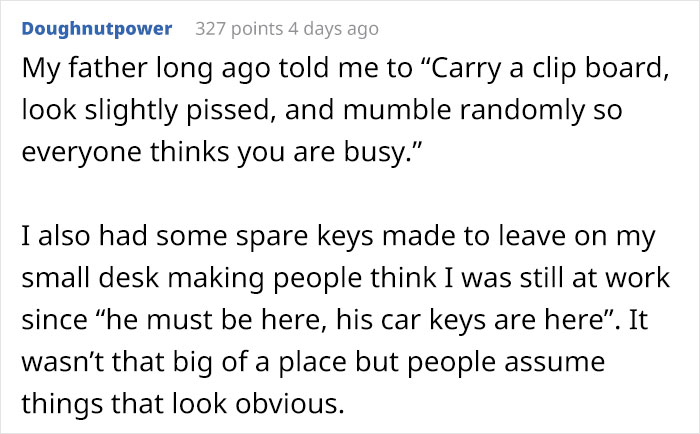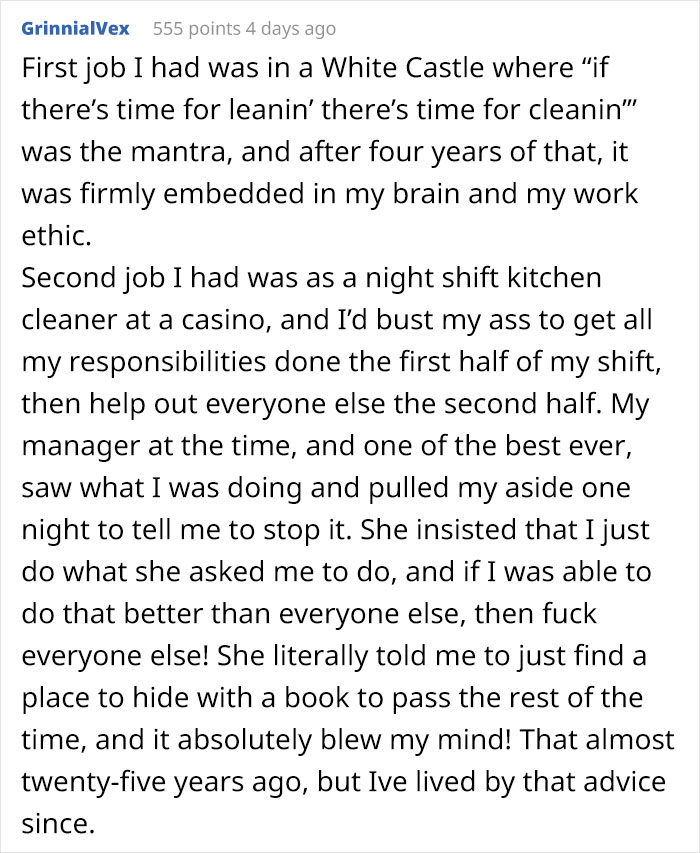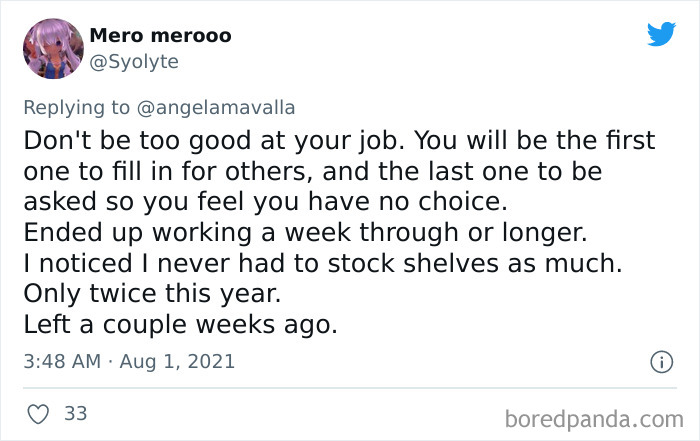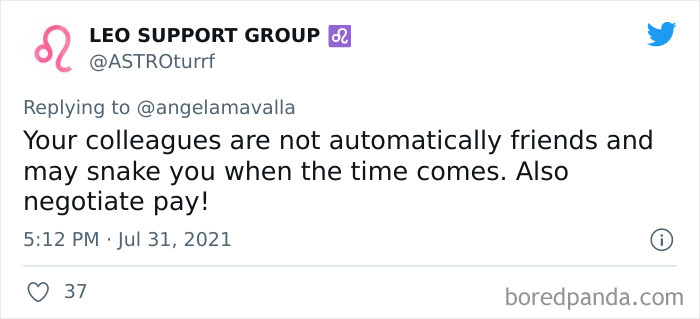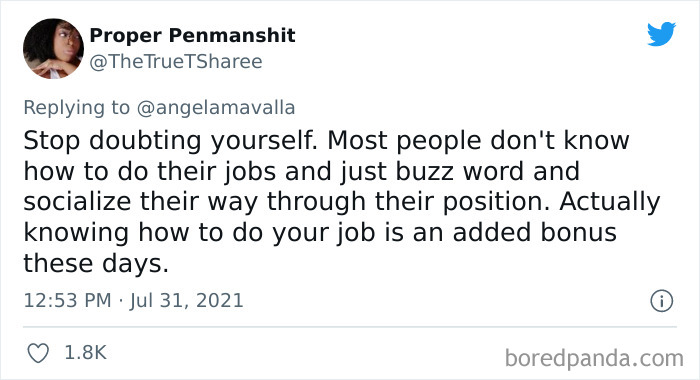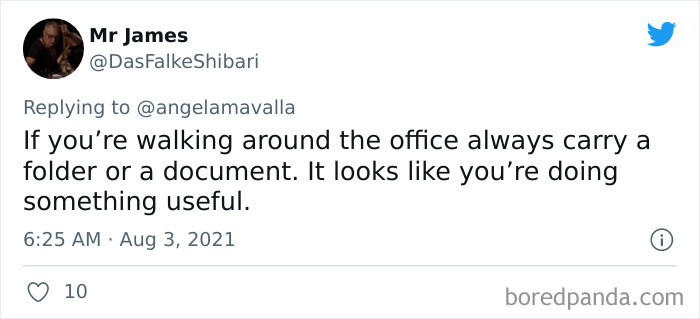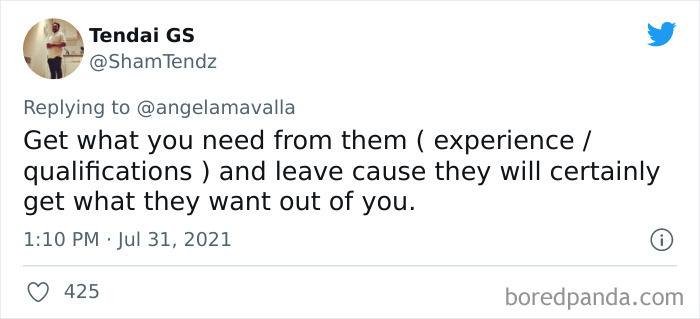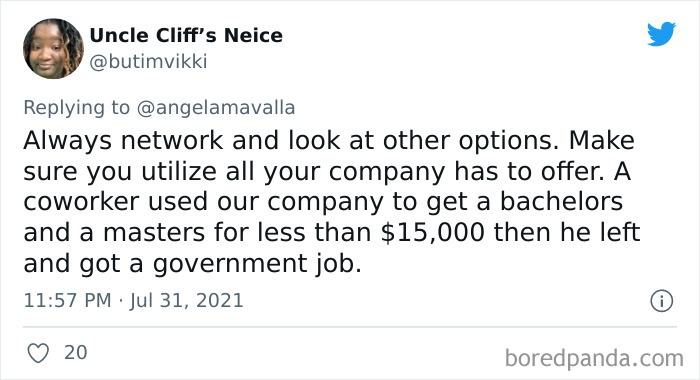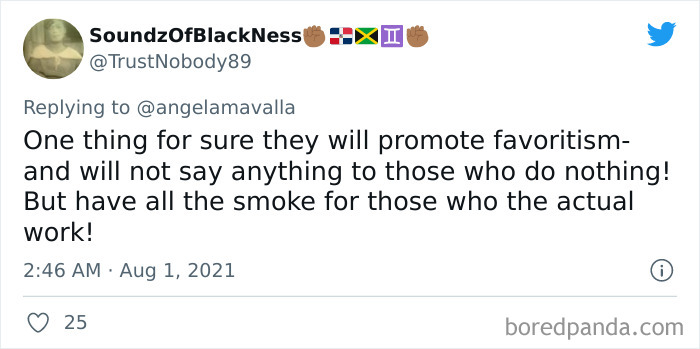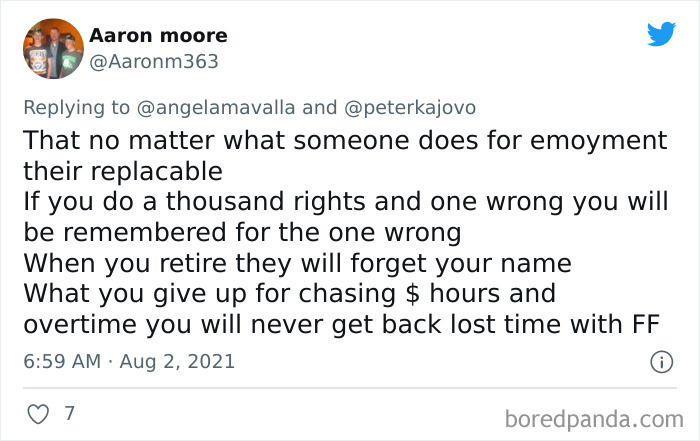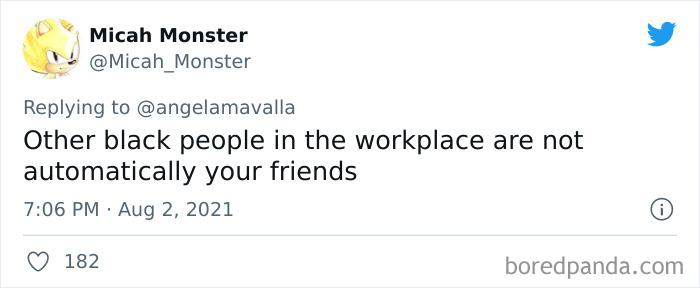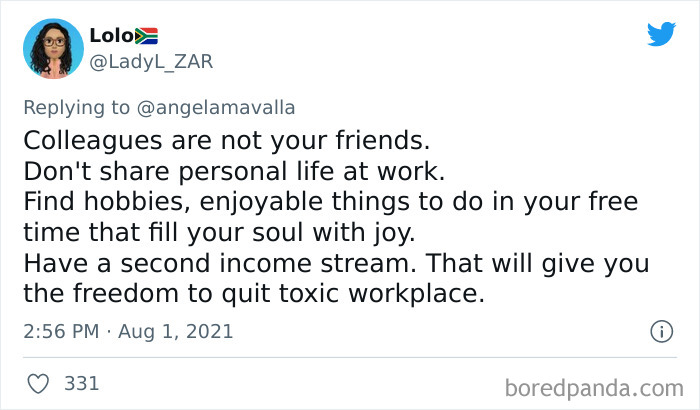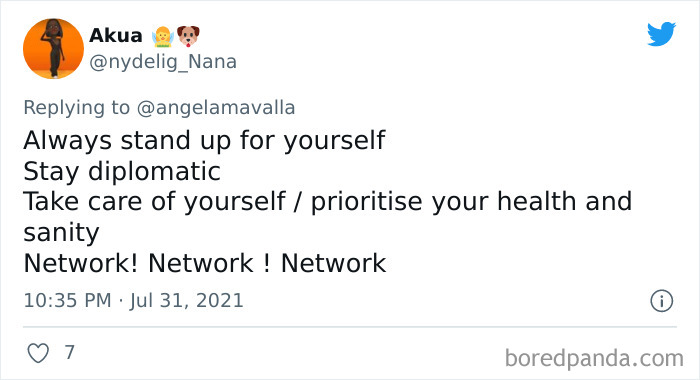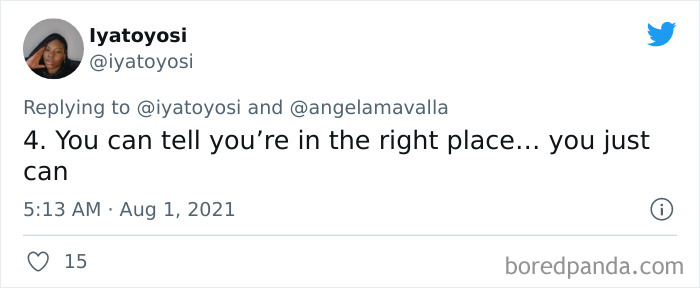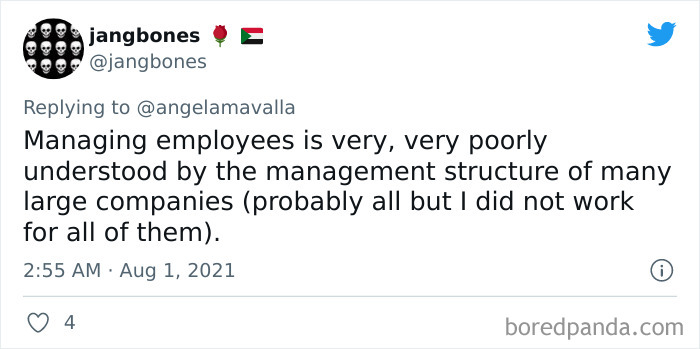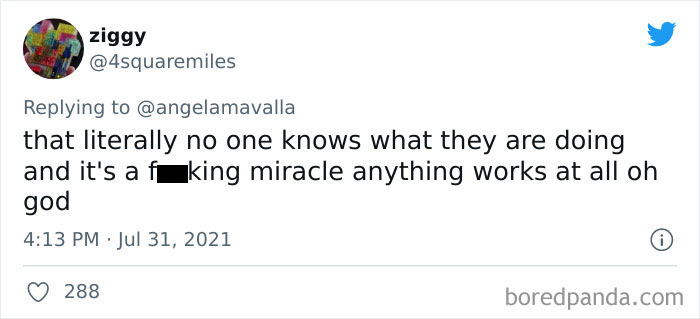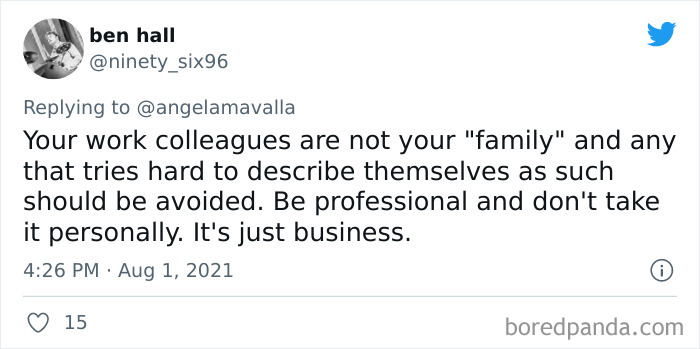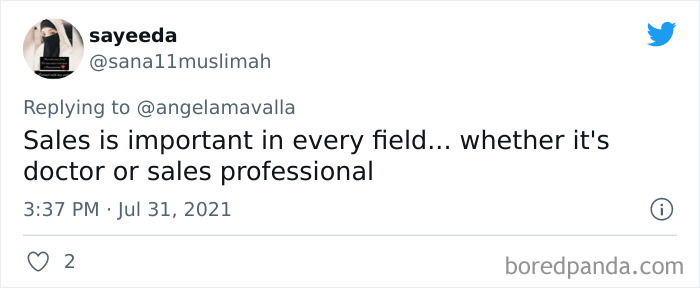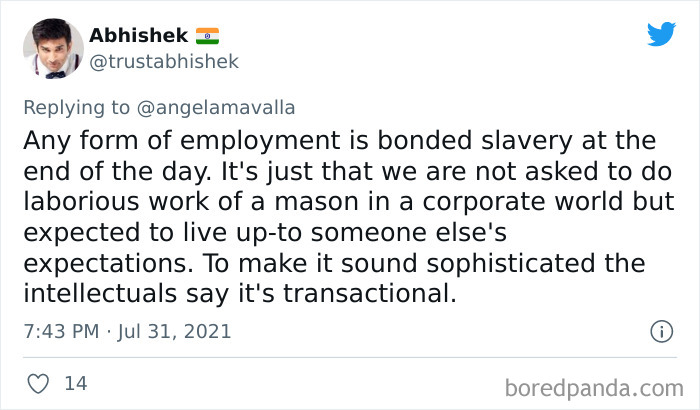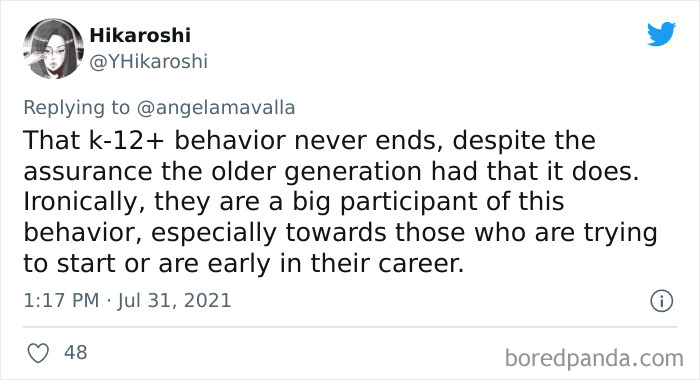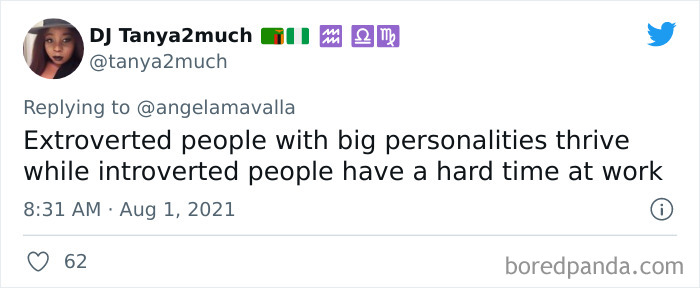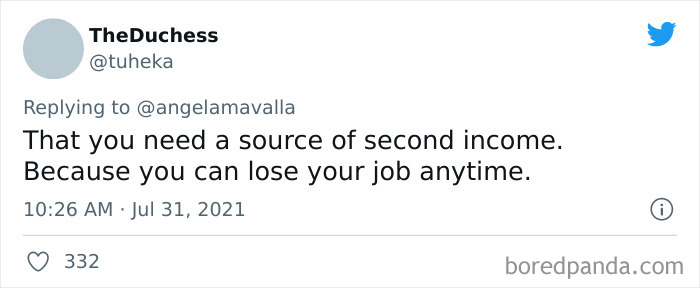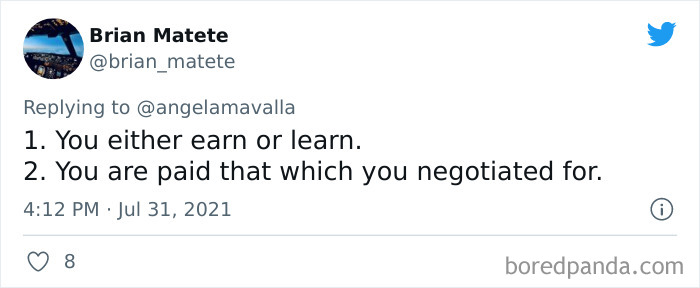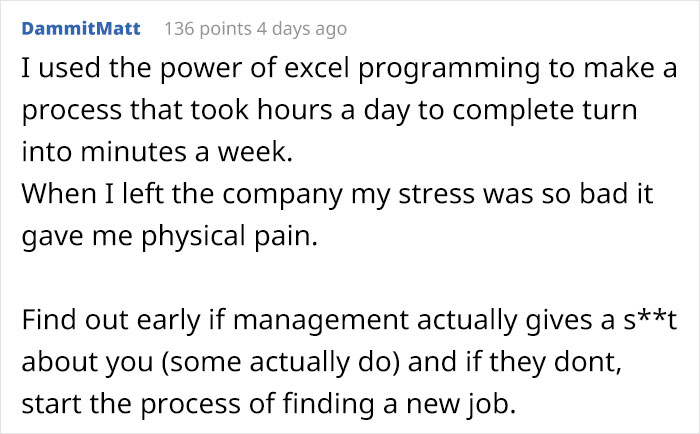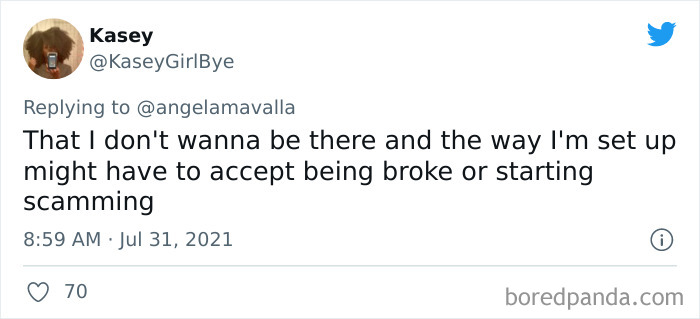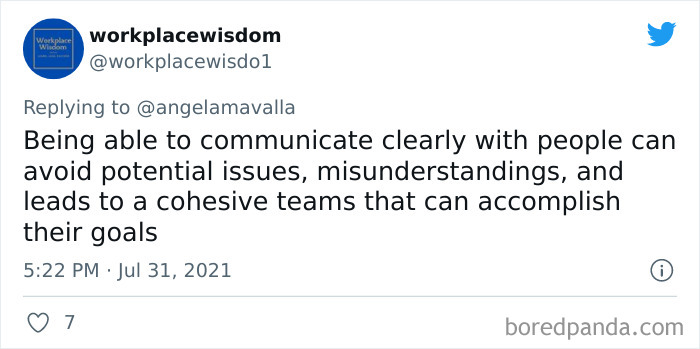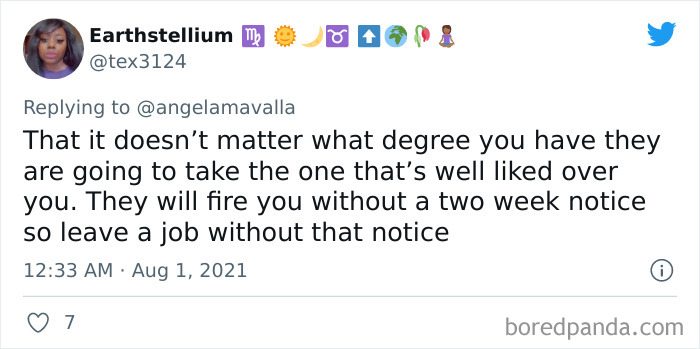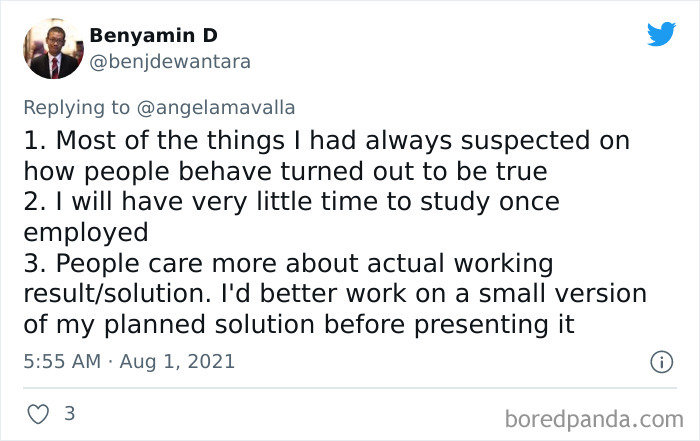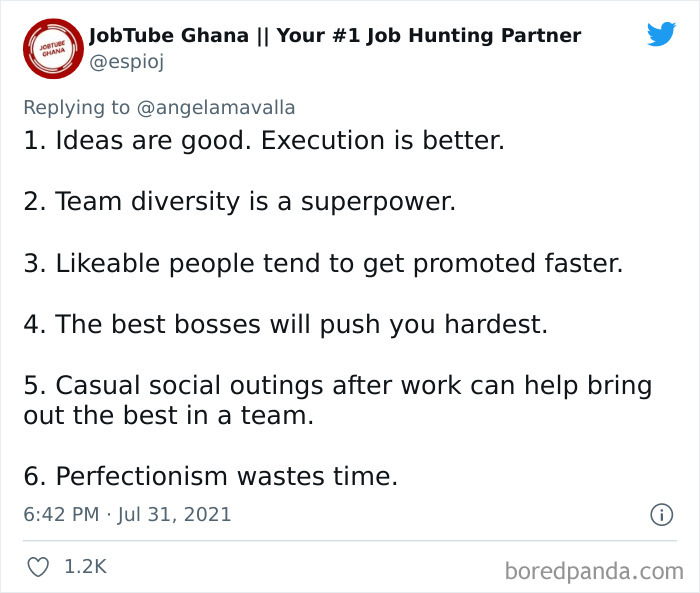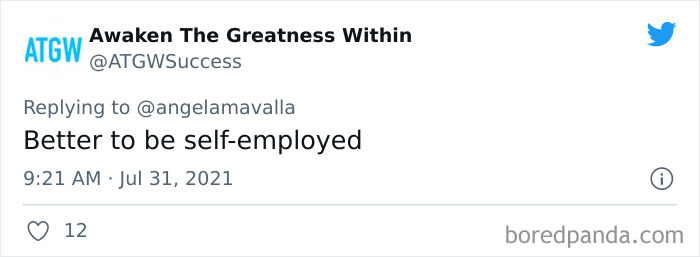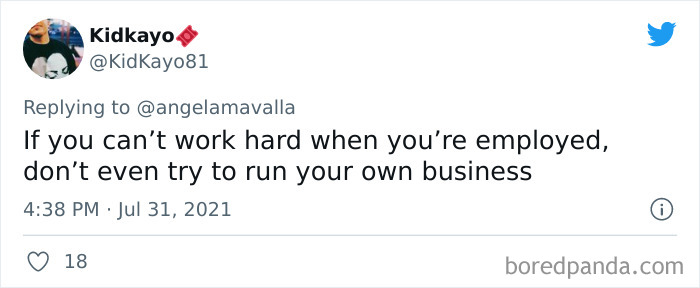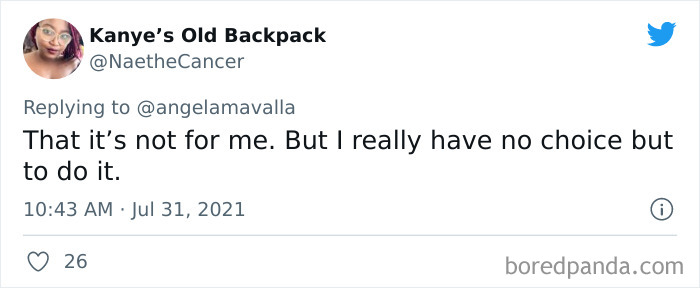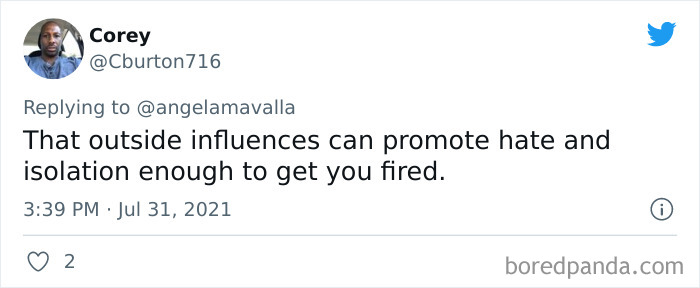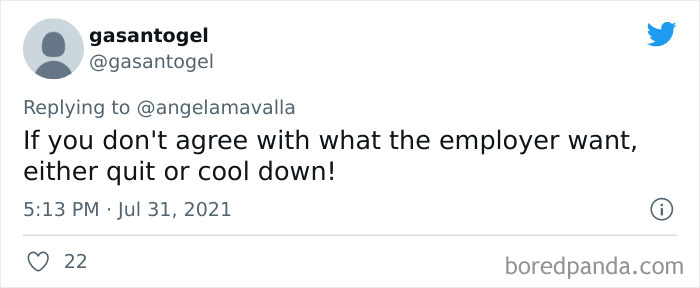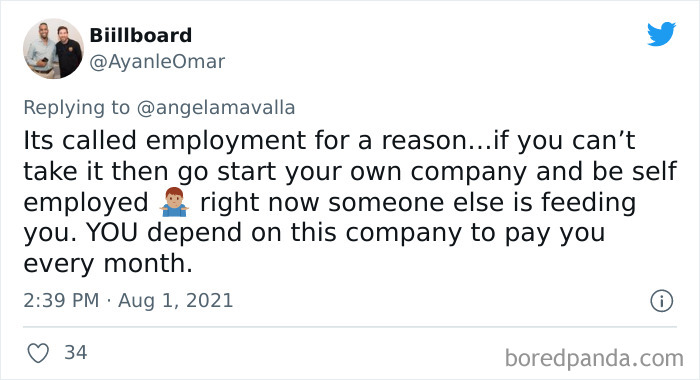Most of us see life as a continuous learning process. Whether it's unexpected situations, new relationships, or foreign countries, we often strive for fresh experiences and exciting adventures by stepping out of our comfort zones. After all, we usually come out stronger and are quite surprised by the things we learn about ourselves and the people around us.
Yet, when it comes to our jobs, we tend to feel a bit intimidated since each career shift leads us to a path full of little mishaps. Luckily, we are not the only ones. It seems that there are plenty of people ready to share their priceless wisdom and teach others about the nooks and crannies of the professional world.
Several months ago, Twitter user angelamavalla asked her followers, "What is the biggest lesson that employment has taught you?" and hundreds of answers started rolling in. So take a look at some of the best tweets Bored Panda has collected from this thread, upvote the ones you agree with, and be sure to share your own thoughts in the comment section below!
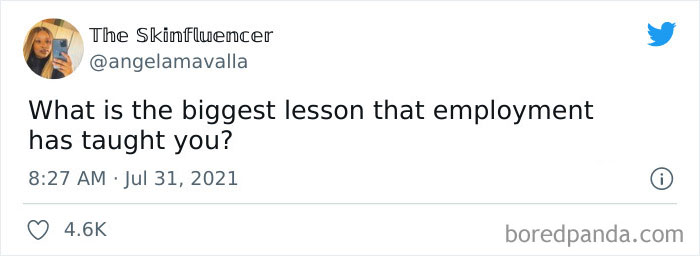
This post may include affiliate links.
I can't tell you how many jobs I hopped around to last year, just trying to find one that offered quality health insurance
To learn more about employment and the lessons people were not aware of at first, we reached out to Nicola Simpson, a London-based career coach. According to her, the need to strategically manage their career is at the top of the list.
"In the early years, the attention is on the acquisition of skill, knowledge, expertise," she told Bored Panda. "Thereafter, people need to be thinking about their long-term career progression, focusing on the selection of roles they both want and NEED to do to advance, and then actively managing their timeline." Namely "not staying in any one role too long, equally not leaving too soon."
Sometimes, it can be challenging to understand the companies we work for or the people we work with. "Attention needs to be given to the underlying culture and relationship dynamics within organizations," Simpson said. "People need to ask themselves, what factors are driving these?"
She explained that making sense of this can be tricky, "but getting to the root drivers helps to create awareness and options for how best to respond."
This is true. Also as an employee you need to learn the art of saying no. It is ok not to overfill your plate. Both you and the employer will be better off.
The career coach mentioned that reading through others’ experiences online can help people make better decisions in their professional lives. "The stories of others can inspire and also serve as a warning of the many career pitfalls out there," Simpson added.
"Be confident in your career and your ability to navigate the inevitable challenges that will arise on the way. Get the help of a career coach when needed and have a plan, don't drift."
Simpson advised you to remember that all experiences, both good and bad, allow an opportunity for growth and development. "Even the worse professional encounters can be our best educators," she said.
If, and only if, you can afford it, resign and get another job. I value nice people over high salary. Having friends at work improves mental health.
I saw someone get let go days after receiving a recognition award for 30 years of service to the company. 30 years. They walked out immediately, and left everything at their desk. Including that 30 year award.
The key there is "getting along". Being friends with your coworkers, and getting along with them are two totally different things (that many people conflate).
According to a survey by Gallup, American adults who say they are "completely satisfied" with their jobs have exponentially increased over the past few decades. In 2021, people who were "completely" or "somewhat" satisfied added up to 87 percent of the participants.
However, when they were asked about the amount of on-the-job stress they face every day, only 32 percent of workers said they are "completely satisfied". The results revealed that people feel more stressed than at the beginning of the pandemic. While workers in the U.S. might be more satisfied with their workplace safety, relationships with coworkers, and job security, there’s still plenty of room for improvement.
Biggest red flag for me, in job postings. "we're a family". That and "team players wanted". That one means shut up, do your job, and take any abuse they throw at you.
If you feel like you’re in a bad situation at work or consistently dread going there, thinking you might have the "can’t get out of bed in the morning" syndrome, your work environment might be toxic. Kristina Leonardi, a nationally recognized career coach, speaker, and writer, told Bored Panda in a previous interview that if you’re not feeling energized or expansive from your job and cannot use your time in a way that feels useful, you’re not able to lead a fulfilling life.
Wrong. Just saw major action at an old place of employment as a result of someone being brave in their exit interview. She did it for all of the women who still work there. And he was just let go -after years of terrible behavior. The exit interview CAN matter. Make sure you secure your new job before quitting your old one. References will be done.
This is a weird manifestation of this post, but I once sprained my right pinky in a softball game and had to put it in a splint. The next week or two at work I was so focused on getting my work done, and the splint so annoying to mouse with, that I took it off. Now I have a curved pinky that healed in the shape of my computer mouse as a constant reminder of just this.
Whether you think that your job is harming your physical and emotional well-being or you learned something uncomfortable about your company or the people you work with, there are a few things you should do.
"Take an honest assessment of the situation," Leonardi suggested. "Is it temporary or can it be fixed with a personnel change? Namely, is it just one bad actor or is the tone being set at the highest levels of management?" If you believe that toxic behavior is "initiated, tolerated, or emanated from the top down, there is a good chance that nothing will change, so it’s best to have an exit strategy."
Just understand you'll be burning bridges. And that's okay, if it's okay with you. But if you want to keep working in your industry, especially in the same city... be aware that not giving notice and walking out like that will earn you a reputation. I'm not saying you owe your company anything. It's a job. But just like free speech - just because you CAN doesn't mean you won't deal with ramifications.
Job description and job requirements are usually a wish list for the hiring managers. If you don't have something listed don't worry the cutoff is rarely 100% to get the interview, the interview is what gets you the job, so apply. I like the example of 10 years experience in a program that has been out for 5. Also don't just focus on the skills and experience in your current job, you have transferable skills from your whole life even outside work.
This only works if you have enough money in the bank to pay the bills while you're looking for that "better job."
Sometimes, people want to show that they are good employees by taking on more work and responsibilities while not anticipating that their boss could start exploiting them. Kristina Leonardi mentioned that people who tend to stay at toxic workplaces can sometimes show "a certain lack of self-worth and no boundaries, which others take advantage of."
Luckily, many workers eventually realize they deserve a healthier environment and kinder treatment. "Once they recognize this and do the work on themselves to get to a better place of inner value and self-esteem, their next situation will improve. Otherwise, they will keep repeating the pattern until they learn (it will be a case of 'same boss, different name')."
Leonardi explained that your time and your energy are your most precious resources. "No job situation is perfect but no one should tolerate a toxic environment; everyone has a unique set of skills, talents, and abilities they can apply in some shape or form." Moreover, people can always find something new "where they can develop, learn, grow, and then use that opportunity to get to the next best place on their career journey," she concluded.
I was in a job that was 24/7 365 days a year, but had trouble getting relief for the toilet, called the state to get the facts and was told I could close the place down if I wanted to make an official complaint. The most powerful feeling of my life. HR took care of it.
Because stuff happens. Company starts losing money. Gets bought out. Natural disaster. Whatever.
Office backstabbers always have the best smiles and most patient ears. It's how they get ahead, by listening to grievences and turning around to management to repeat what they've heard.
I saw this happen at my first job when I was around 20. I decided right then that I would do my best not to die at work at a crappy desk in a dreary office.
If a coworker gossips to me, I set up boundaries. I'm not having that toxicity.
That would depend entirely on the job nature. I did not even invite people for interview if it was clear from their CV they have a habit of changing jobs every couple of months. While the position was easy to refill and train for, good relationship with clients was important and it does not look good for the company if clien’s rep change too often.
If you feel the need to document everything, get out. There are other jobs.
I had a college student once who bs'd his way through an exam - just basically random-guessed at the answers. And passed, barely. I spoke to him later and said 'if that works for you, keep doing it. Use the extra energy and time for something you care about'. Btw, asked him what he wanted to be - he said a teacher. He later emailed me (several years later and anonymously, but I recognized the email address) and said that I was the best teacher he ever had.
I'm tired of this one. Maybe education is different: or maybe the people that don't think colleagues can be friends don't know how to be friends themselves. One of my best friends is someone I worked with in private school for 3 years. My youngest brother's closest friends are two guys he's worked with for decades. This: BS.
Yes. I have bad days at work, but I'm doing work I believe is good. And I feel like my boss(es) know I'm an asset.
So much depends on having your eyes open. There are good companies and great coworkers, but you have to pay attention. If you see red flags, believe they're real, but don't mess up a good thing with suspicions.
This is wrong. Employees get paid, and could quit if they really want. Slaves don't. The OP either a teenager/student who hasn't enter the workforce yet or a salty employee who couldn't quit their job because they want the pay.
There is usually a reason why other employees were better liked than another. Sometimes it's because they are better at kissing asses, but most of the times it's because they do better jobs.
"The best bosses will push you the hardest" - oh just go away. Pushing employees into burnout does not achieve anything.
There is no such thing as self employed. Your boss is the customer at that point. You just want to be self managed.
Totally agree. Too many people see "Be my own boss!" as an easier path. You're going to have to work just as hard, if not harder. The benefit is you get more agency over what work you'll be doing.
Don’t delete work emails, you never know when you might need to pull it out to combat some BS.
Learn labor laws and harassment laws. If I knew then what I know now, I could have sued management at WB for harassment. Managers deliberately coming in late to make me miss college classes, harassing me with calls all day complaining about trivial things (write ups if a single table tent number is missing) etc. I didn't know it was hostile work environment and I could have had a lawyer on their whata-butts
Wow. This feels very American to me. Does everyone else in other countries feel the same? It could be summed up by saying, be a crap employee because that's what your crap employer deserves. It's so negative. I've had so many great jobs with great companies all over the world.
Exactly. I have had some bad experiences but once I found the right place everything about work feels like home: colleagues are like family, job is satisfying, boss cares a lot and shows it. Loyalty still exists. That felt like a dirty word and that's kinda sad. My take is, leave if you feel like the above until you find a worthy place, but i understand some dont find it yet and they got bills to pay.
Load More Replies...Don’t delete work emails, you never know when you might need to pull it out to combat some BS.
Learn labor laws and harassment laws. If I knew then what I know now, I could have sued management at WB for harassment. Managers deliberately coming in late to make me miss college classes, harassing me with calls all day complaining about trivial things (write ups if a single table tent number is missing) etc. I didn't know it was hostile work environment and I could have had a lawyer on their whata-butts
Wow. This feels very American to me. Does everyone else in other countries feel the same? It could be summed up by saying, be a crap employee because that's what your crap employer deserves. It's so negative. I've had so many great jobs with great companies all over the world.
Exactly. I have had some bad experiences but once I found the right place everything about work feels like home: colleagues are like family, job is satisfying, boss cares a lot and shows it. Loyalty still exists. That felt like a dirty word and that's kinda sad. My take is, leave if you feel like the above until you find a worthy place, but i understand some dont find it yet and they got bills to pay.
Load More Replies...
 Dark Mode
Dark Mode 

 No fees, cancel anytime
No fees, cancel anytime 


